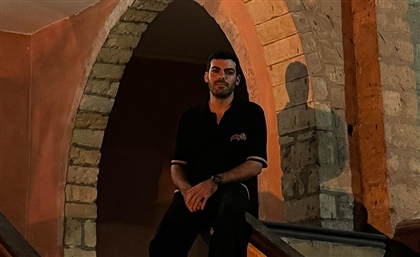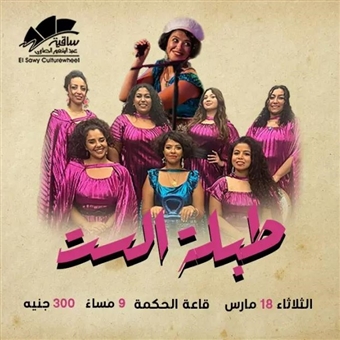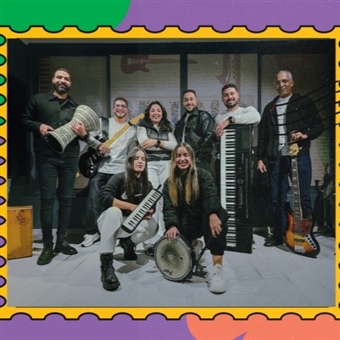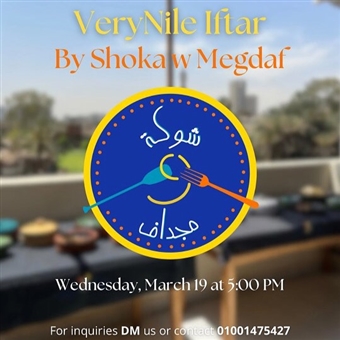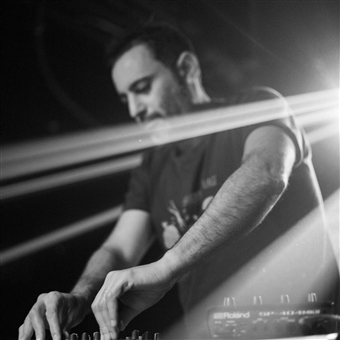7 of Egypt's Top Producers Give Tips on Building a Home Studio
For a beginner, building a home music studio can be an impossibly expensive task. However, thanks to these tips provided by some of Egypt's best music producers, you can find out what you actually really need to create the sound in your head at home.
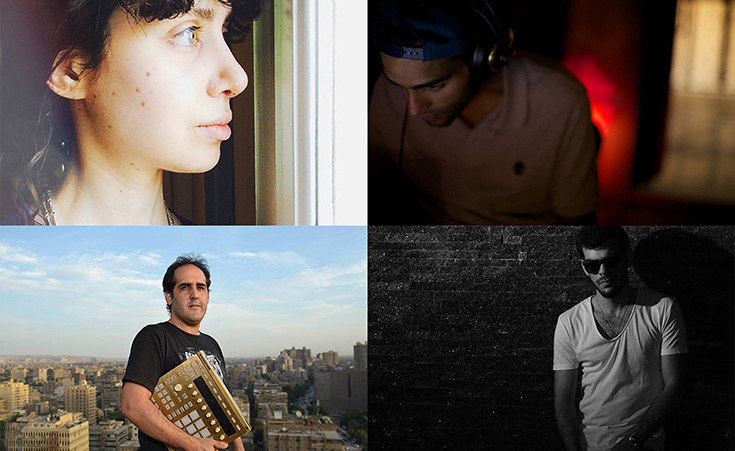
Every one of us musically inclined folks have been prone to the musicianship bug. At some point or another, you get bitten by the little critter following an intense performance by a good musician, or after hearing a really good song play on the stereo. Some have passed that phase without spending every last penny they own trying to buy gear, others weren't so lucky and went down the long road of building a studio and purchasing production equipment only to end up not being able to use it. We decided to accumulate a list of recommendations from some of Egypt's best producer to help you out. No matter your musical direction this list will help you out, as it contains advice from musicians making house, techno, hip hop, and experimental music. Most of the gear on this list is available for purchase in Egypt and if you don't find what you want here you can always ask someone coming from abroad to buy it for you. What is essential when buying production equipment is to not follow the hype surrounding a product - as it is usually created to increase sales - to affect your decision, trust us on this one, this is all that you need to start on the long road of music production.
Amir Farag
I'd say for a total noobie, they should invest in a small keyboard. Launchkey Mini Mk2 by Novation or a Minilab by Arturia. Essentially, they are two-octave midi keyboards and should serve the beginner very well and are long term investments. A simple audio interface nothing fancy, a Novation Audiohub 2x4 is a good choice and it's built like a tank. To get started all you really need to choose is the software (DAW) you are comfortable using. Options like FL Studio & Ableton are strong and easy choices to learn and have very easy to find help online.
Once you're adept with your new Noobie music setup, you can start to think about investing in a good pair of monitors or for the same amount a high-quality pair of production mixing headphones like the Avantone MP1's. This way you'll not have to worry about room acoustics, and your setup is now portable. Monitors are a personal choice. You must go listen to them and see which one is most suitable for your musical style and room.
Once things get a little more serious and you're getting tracks made and feeling more confident. Invest in these three things:
1) Education (Take courses online checkout www.bel3araby.net or locally at places like Epic 101).
2) Room acoustics (Get your first pair or monitors to match your room size).
3) Start to add new bits of gear depending on what musical style or workflow you've gotten good at. You may find yourself turning into a mixing engineer and not necessarily producing the music. So follow what feels natural. Don't force yourself into a workflow that's not you. Just be yourself.
Misty
I recommend the Focusrite 2i4 soundcard, it's reliable, does exactly what you need with top sound conversion and enough inputs to accommodate upgrading your studio in the future. Krk Rockit5 monitors, cheap and reliable, the best way to start listening to music in a near field environment. An Akai APC 25key midi controller, perfect for automation and getting more of a hands on approach as opposed to using a mouse and keyboard. However, if you are composer looking to make electronic music I recommend investing in a small synthesiser (Korg Micro or Novation Mininova).
Guitar players and live recorders should invest in purchasing Guitar Rig or a Rode NT series. As for VST Plugins, my recommendations would be Native Instruments FM8 Arturia pack (for analog sounding emulators of classic synthesisers). Sound Toys effects bundle, and the Fab Filter effect series. Sample packs, Loopmasters, holds the cleanest and widest range of genre varied samples, but if you are strictly into electronic/house music then I recommend Sample Magic.
Hady Tarek
Treat your room: (1.5 – 3 k)
So before you start making music, you have to start to listening to it properly which will save you lots of time in terms of the quality progress. There are as many DIY acoustic treatments online as there are people who will sell you cheap absorption panels and bass traps. Start with whatever you can do, it is better than nothing, the world’s best equipment and monitors can’t help you if you have a bad room. Software and hardware are available that can help compensate for room problems but nothing beats acoustically treating your room.
Monitors: (2-5 k)
Monitors are not cheap even the basic commercial ones can be expensive, but they are your ears when you can’t hear so you have to carefully invest in the right pair. 5-inch monitors should be good for a beginner's budget, especially if you have a small and not so treated room, but the most important feature in a monitor is to make sure it's flat and transparent in colour.
Yamaha HS50, in my opinion, is the best choice. I had them before I upgraded to the bigger ones, they might lack low end but that is normal for any 5-inch monitor and if you can sound good on it, you are good to go on any speaker. However, if you are on a budget, cheaper alternatives are the Mackie MR 5 of PreSonus Eris.
Audio Interface: (1-3 k)
If you are not recording multiple instruments at the same time, a simple audio interface should do. I highly recommend the Native Instruments Audio Kontrol 6, a total bang for your buck for any dance music producers. It's tough so you can take it on the road, it has great quality, enough ins and outs with LED indicators, no driver problems and best of all the monitor volume knob on top. Alternatively, if you record a lot and really want the best pre-amps on a budget then go for the Focusrite Scarlett.
Midi Controller (1-2 k)
For compositional work simple is key here, that means buy the one with best feeling keys to play on, it’s the most important thing. Velocity, pitch, modulation and transpose is all you need. Personally, I love the feel of M- Audio Axiom series, there's a 25 and 49 keys version depending on your budget and musical need. Alternatively for those on a budget I recommend the Novation & Akai .
VST Plugins: (2-5 k)
With plugins I really suggest you start with few and know them pretty well and get the best out of them. You can get amazing results from very few plugins if you know how to use them well.
Synth Plugins: Sylenth, Z3ta 2, Nexus, Serum are some of my favourites. You can only use one of them and do absolutely brilliant & wicked sounding music.
Mixing Plugins: I suggest you use the ones you have in your DAW until you are more experienced in the mix and become in need for serious quality mix plugins as they can be expensive, that said Fab Filter & Waves have relatively cheap bundles & offers if you have the cash.
Mohey
I would recommend beginning with a starter kit that consists of an audio interface from Focusrite because they have a great range of products and quality. A Focusrite Saffire is a great audio interface but sadly it's discontinued. However, the Scarlett series is still pretty good and offers great quality, top pre-amps and are very affordable. Moving on to the studio monitors, I started with KRK's Rokit series, which fits my needs based on my room and the setup environment. Adam is also a great option for starters.
As for the controllers, there's a good variety of gear out there and it really depends on your approach to creating music. Generally, a good midi controller that acts as a keyboard with on-board knobs and faders would be ideal for playing music, as well as routing and mapping. Novation has a whole range of midi controllers for starters and professionals, Akai also is highly recommended. Both brands are affordable and pretty easy to setup with many DAW software, specifically with Ableton. As for synthesiser lovers, I would recommend them to go for an analog synth like a Moog Mother 32 or a Minitaur.
Sarah Badr
Starting out, I had been playing around with Pure Data for quite a bit, which is a great (and free) introduction to sound synthesis with plenty of tutorials available online. It's also an excellent way to get into Max/MSP later on. For sequencing and editing, I initially used Audacity (also free), and then eventually chose Ableton Live as my primary DAW because of its versatile features, library and workflow. For that [Ableton], I got an M-Audio MIDI keyboard and, a little later on, a Novation Launchpad.
In terms of externals, I had an electro-acoustic guitar whose sound I fed into a Whammy pitch-shifting pedal, through to a rather basic Behringer audio interface. For monitoring, I'd gotten a pair of lower-end Sennheiser headphones. In those days, it was all about trying to make the most out of a tight budget — and it still more or less is that way. But, over time the gear tends to accumulate on an as-needed basis. The key really is to master using what you have, when you have it. Sometimes all you need is what you already have, e.g. the mic in my phone - which is far better than the first USB mic I ever got - and is what I use today for recording at home and out in the field, I just use an app, Apogee's MetaRecorder to activate the mic's signal, then feed it to the interface.
Smash Beats
I've only used the Akai MPD and Akai APC, not a lot just a few times. I've used the MPD during the beat making process and live but use the APC for live only. I enjoyed the Akai MPD 32 a lot more. The Akai MPK Mini is relatively cheap and is also really good. I don't use VST's 5ales, I actually don't like using them. I feel I can design all the sounds I want through Ableton's sampler and operator. Sample packs I've used a few but no favourites I've used a sample kit that had a lot of the sounds J Dilla used, along with Sony's SFX series, a lot of real life sounds and stuff and I just play around with them.
Dubfunk
Going into the world of music production is no easy feat, I broke down all the basic needs that a noobie producer might need into categories. You don't need to buy everything at the same time, start on top and make your way through to the bottom, adding bit's and pieces as you go. The room preparation is essential though and can be easily done at home with a toolkit and some egg crates.

Trending This Week
-
Mar 09, 2025




